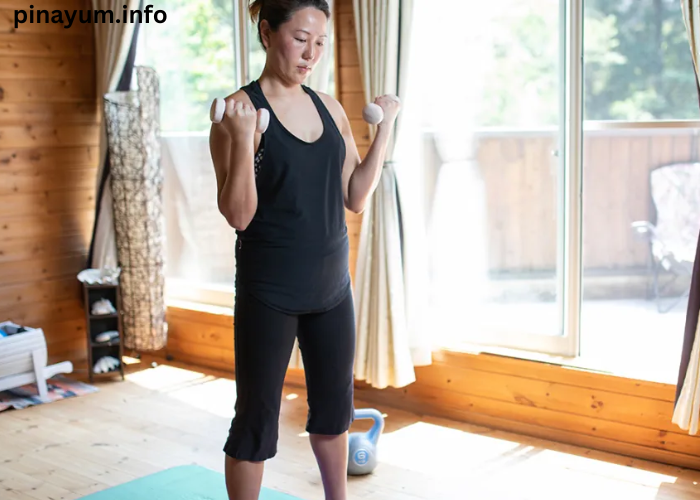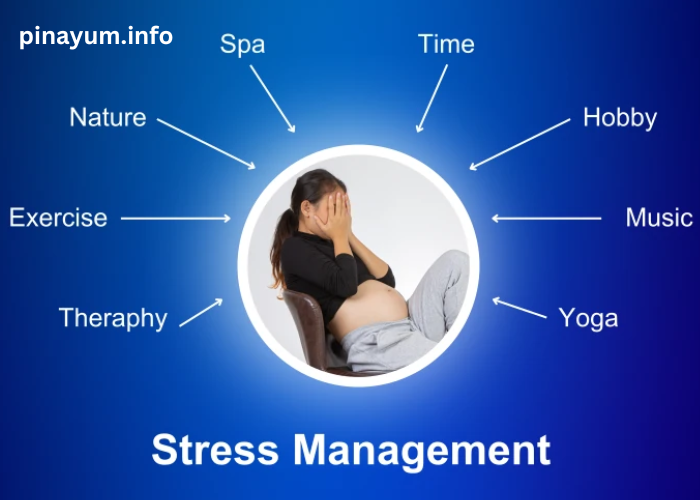In today’s fast-paced world, maintaining a healthy lifestyle is more important than ever. With an increasing amount of work, family commitments, and social obligations, it can be easy to neglect your own well-being. However, focusing on wellness practices can help you not only improve your physical health but also enhance your mental and emotional well-being. The goal is to create a holistic approach to health that addresses all aspects of your life, from your diet to your relationships, mental state, and daily habits.
In this article, we will explore the top wellness practices that can help you achieve a healthier, more balanced lifestyle. These practices can be incorporated into your daily routine and tailored to your specific needs. By embracing a few key habits, you can significantly improve your quality of life and experience greater vitality and happiness.
1. Prioritize Nutrition: Fuel Your Body Right
The food you eat directly impacts your overall health. A balanced diet is essential for maintaining energy levels, improving mood, and supporting your immune system. A nutritious diet should consist of a variety of whole, minimally processed foods, including fruits, vegetables, lean proteins, whole grains, and healthy fats.
Practical Nutrition Tips:
- Eat a Balanced Diet: Aim for a balanced plate with a variety of colorful vegetables, fruits, lean proteins like chicken or legumes, and healthy fats such as avocado or nuts.
- Limit Processed Foods: Processed foods often contain added sugars, unhealthy fats, and preservatives that can negatively affect your health. Instead, choose whole foods that are nutrient-dense.
- Stay Hydrated: Drink plenty of water throughout the day to support digestion, circulation, and the body’s overall function.
- Practice Portion Control: Be mindful of portion sizes to prevent overeating. Eating smaller, more frequent meals throughout the day can help stabilize blood sugar and maintain energy levels.
Benefits:
Good nutrition supports healthy brain function, aids in weight management, boosts energy levels, and helps reduce the risk of chronic conditions like heart disease and diabetes.
2. Regular Physical Activity: Move to Thrive
Exercise is one of the most effective ways to improve both your physical and mental health. Regular physical activity strengthens your heart, improves circulation, boosts metabolism, and increases overall energy. Moreover, exercise has been proven to reduce stress, alleviate anxiety, and improve mood by releasing endorphins—the body’s natural “feel-good” hormones.
Types of Exercise to Incorporate:
- Aerobic Exercise: Activities like walking, running, cycling, and swimming improve cardiovascular health and stamina.
- Strength Training: Building muscle through weight lifting or bodyweight exercises like squats and push-ups helps maintain bone health, balance, and metabolism.
- Flexibility and Mobility: Yoga, Pilates, and stretching improve flexibility, reduce tension, and enhance mental focus.
- Mind-Body Practices: Activities such as tai chi and yoga not only enhance physical fitness but also promote mindfulness and relaxation.
Practical Tips:
- Set a Routine: Try to aim for at least 30 minutes of moderate exercise most days of the week. This can include any activity that gets your heart rate up.
- Start Slow: If you’re new to exercise, start with low-impact activities and gradually build intensity.
- Find Enjoyable Activities: Choose exercises that you enjoy to increase the likelihood of sticking with your routine.
Benefits:
Regular exercise enhances your physical health, increases energy levels, improves sleep quality, and fosters emotional well-being.
3. Embrace Mindfulness and Stress Management
Mental health is as important as physical health when it comes to wellness. Mindfulness and stress management techniques help promote emotional balance, reduce stress, and foster a sense of calm. Mindfulness is the practice of staying present and fully engaged in the moment, which can help reduce negative thinking patterns and anxiety.
Practical Mindfulness and Stress-Relief Practices:
- Meditation: Regular meditation practice helps reduce stress, improve focus, and calm the mind. Start with short sessions and gradually increase the duration.
- Deep Breathing: Breathing exercises, such as the 4-7-8 technique or diaphragmatic breathing, help activate the body’s relaxation response and lower stress.
- Journaling: Writing down thoughts and feelings can help process emotions and reduce stress. It also allows you to reflect on your day and practice gratitude.
- Mindful Movement: Activities like yoga or walking allow you to be in the present moment while engaging in physical activity.
Benefits:
Mindfulness practices help lower stress levels, increase emotional resilience, improve focus, and enhance overall mental clarity.
4. Prioritize Sleep: Rejuvenate Your Body and Mind
Adequate sleep is critical for good health. Sleep is the body’s time to repair and regenerate, and insufficient sleep can lead to a weakened immune system, increased stress, and impaired cognitive function. Prioritizing good sleep habits can dramatically improve your well-being.
Practical Sleep Tips:
- Establish a Sleep Routine: Try to go to bed and wake up at the same time every day, even on weekends, to regulate your body’s internal clock.
- Create a Sleep-Friendly Environment: Keep your bedroom cool, dark, and quiet. Limit screen time before bed, as the blue light emitted from phones and computers can disrupt sleep patterns.
- Limit Caffeine and Alcohol: Avoid consuming caffeine in the afternoon and evening, as it can interfere with your ability to fall asleep. Similarly, while alcohol may make you feel drowsy, it can disrupt the quality of your sleep.
- Practice Relaxation Before Bed: Engage in calming activities such as reading, gentle stretching, or a warm bath before bed to signal to your body that it’s time to wind down.
Benefits:
Good sleep improves memory, enhances mood, supports immune function, and boosts cognitive performance. Sleep is also crucial for weight management and reducing the risk of chronic health conditions.
5. Foster Social Connections: Strengthen Relationships
Humans are social creatures, and maintaining strong relationships is vital for emotional health and well-being. Social connections provide a sense of community, support, and belonging. They can reduce feelings of isolation and help you cope with stress, making them an essential part of a balanced lifestyle.
Practical Tips for Building and Maintaining Relationships:
- Spend Time with Loved Ones: Make time for family and friends, whether through regular phone calls, meals together, or outings.
- Join Groups or Communities: Participate in social or recreational activities, such as clubs, hobbies, or fitness groups, to expand your social circle.
- Be Present: Practice active listening and engage in meaningful conversations with those around you.
- Volunteer: Giving back to your community or helping others is a great way to foster connections and promote a sense of purpose.
Benefits:
Social support helps improve mental health, enhances happiness, and increases longevity. Positive relationships also provide emotional resilience in times of stress.
6. Practice Regular Self-Care: Nurture Yourself
Self-care is an essential part of maintaining physical, emotional, and mental health. Taking the time to care for yourself allows you to recharge, build resilience, and promote self-love. Self-care can take many forms, including physical, mental, and emotional nurturing.
Practical Self-Care Practices:
- Pamper Yourself: Regularly engage in activities that make you feel good, such as taking a bath, getting a massage, or treating yourself to something you enjoy.
- Engage in Hobbies: Pursue activities that bring you joy and relaxation, whether it’s painting, gardening, or crafting.
- Unplug from Technology: Take breaks from social media and digital devices to reconnect with yourself and the present moment.
- Set Boundaries: Practice saying no when you feel overwhelmed and prioritize your needs above others.
Benefits:
Self-care promotes a positive relationship with yourself, reduces stress, boosts self-esteem, and helps you maintain emotional balance.
7. Integrate Holistic Wellness Practices
Holistic wellness focuses on achieving balance in all aspects of life, including the body, mind, and spirit. Integrating holistic wellness practices can enhance your physical, mental, and emotional health in a way that fosters a sense of overall well-being.
Holistic Wellness Practices:
- Acupuncture: This traditional Chinese medicine practice uses needles to stimulate specific points on the body and can help with pain management, stress reduction, and overall balance.
- Aromatherapy: Using essential oils for relaxation or stress relief can positively impact mood and mental clarity.
- Massage Therapy: Regular massages help to relax muscles, reduce stress, and enhance circulation.
Benefits:
Holistic practices support your body’s natural healing processes, promote balance, and improve both physical and mental well-being.
Conclusion: Embrace Wellness for a Healthier Future
Creating a healthier lifestyle is not about making drastic changes overnight but about incorporating small, sustainable wellness practices into your daily routine. By prioritizing nutrition, physical activity, mindfulness, sleep, social connections, self-care, and holistic wellness, you can enhance your overall health and experience a more fulfilling life.
Wellness is a lifelong journey that requires dedication, consistency, and a deep commitment to nurturing yourself. As you integrate these wellness practices into your life, you’ll not only improve your health but also create a more meaningful and balanced existence. By taking care of your body, mind, and spirit, you can live a life that’s vibrant, energized, and truly fulfilling.





